
Eugene Spafford Appointed to the CRA Board of Directors
Eugene H. Spafford Appointed to the CRA Board of Directors

Eugene H. Spafford Appointed to the CRA Board of Directors
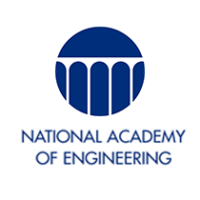
Congratulations to all members of the computing community who were recognized.
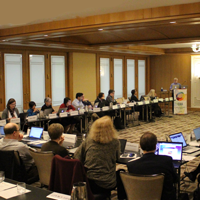
CRA is pleased to announce the 2022 Election Committee’s slate of nominees for the CRA Board. CRA also encourages nominations by petition, which are due by February 28.

The Computing Research Association recently announced Dr. Tracy Camp will become its next Executive Director starting July 1, 2022. Camp is currently the Department Head of Computer Science at Colorado School of Mines. She brings to the role strong experience as a leader in the computing research community at the national level, a history spearheading diversity, equity and inclusion initiatives in computing, and a detailed vision for leading the organization into the future.

The Computing Research Association seeks your help in recruiting candidates for its Board of Directors. We want individuals who have time, energy, initiative, and resources to work on CRA issues on behalf of the entire CRA community. We have a working Board, and all members are expected to work on community issues. Candidates may nominate themselves by completing this form. The deadline for receipt of nominations is December 17, 2021.

In February, the CRA board of directors elected board officers to serve two-year terms beginning July 1, 2021. Nancy Amato is chair; Dan Grossman is vice-chair; Ran Libeskind-Hadas is secretary; and James Allan is treasurer. Today, CRA welcomes three new members to its board of directors: Diana Franklin, Eve Schooler and Katie Siek. Their terms run from July 1, 2021 through June 30, 2024.

CRA members have elected three new members to its Board of Directors: Diana Franklin, Katie Siek and Eve Schooler. James Allan, Stephanie Forrest, Ayanna Howard, Ran Libeskind-Hadas, Rachel Pottinger, and Chris Ramming were re-elected to the CRA board. All of their terms run from July 1, 2021 through June 30, 2024. Vivek Sarkar will remain on the board as the co-chair of the CRA Industry Committee. CRA would like to thank everyone who agreed to run this year.

On February 22-23, CRA held its annual Computing Research Leadership Summit for the senior leadership of CRA member societies and winter board meeting.

CRA is pleased to announce the 2021 Election Committee’s slate of nominees for the CRA Board. CRA also encourages nominations by petition, which are due by February 22.

CRA welcomes Forrest Shull as a new Board Member. Shull is President of IEEE-CS and replaces Greg Byrd as one of the IEEE-CS representatives on the CRA Board, serving along with Leila De Floriani.

CRA welcomes Arvind Krishnamurthy as a new Board Member. Krishnamurthy is the Vice President of the USENIX Board of Directors and replaces Brian Noble as the USENIX representative on the CRA Board. Noble joined the CRA Board in 2017, and CRA thanks him for his term of service.

CRA welcomes Timothy M. Pinkston as a new Board Member. Pinkston replaces Mark D. Hill as an academic member on the Board. Hill recently moved into industry with a position at Microsoft as Partner Hardware Architect with Azure, requiring him to step down from the Board. We would like to thank Hill for his term of service on the CRA Board.
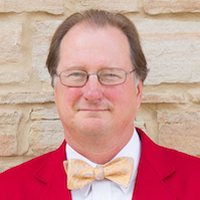
CRA Board Member and CCC Chair Emeritus Mark D. Hill recently held a virtual presentation to CRA staff on “How Computing May Change Our World.” The talk is a great introduction on current topics facing computing and is approachable for audiences who do not have a computer science background. Much of the work discussed is based on visioning work Hill collaborated on when he was Chair of the CCC.

July 1 marks a new fiscal year for CRA. We welcome four new members to our board of directors: Alex Aiken, Cindy Bethel, Liz Bradley and Fatma Özcan. Aiken, Bethel, and Özcan were elected earlier this year, and their terms run from July 1, 2020 through June 30, 2023. Also beginning July 1, Bradley replaces Mark Hill as the CCC Chair and representative on the board. Hill continues on the CRA board in an elected position.
Retiring from the board as of June 30, are Susan Davidson, Brent Hailpern, Susanne Hambrusch, and Barbara Ryder. CRA thanks them all for contributions during their service on the board.

CRA members have elected three new members to its Board of Directors: Alex Aiken, Cindy Bethel and Fatma Özcan. Nancy Amato, Carla Brodley, Dan Grossman and Kim Hazelwood were re-elected to the CRA board. Mary Hall and Mark Hill, who held non-elected positions on the board, have also been elected. All of their terms run from July 1, 2020 through June 30, 2023. CRA would like to thank everyone who agreed to run this year.
There have also been changes to the appointed members to the board. Kathleen Fisher has been appointed the new ACM representative, replacing Mary Hall and joining Alexander Wolf. Beginning July 1, Liz Bradley will replace Mark Hill as the CCC Chair and representative on the board.
Retiring from the board as of June 30, are Susan Davidson, Brent Hailpern, Susanne Hambrusch, and Barbara Ryder. CRA thanks them all for contributions during their service on the board.

The Computing Research Association seeks your help in recruiting candidates for its Board of Directors. We want individuals who have time, energy, initiative, and resources to work on CRA issues on behalf of the entire CRA community. We have a working Board, and all members are expected to work on community issues.
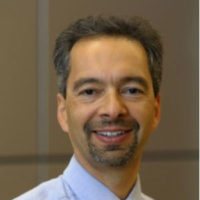
My research explores algorithmic methods for determining whether a pair of species are likely to have coevolved and, if so, finding the “best” scenarios that explain their evolutionary histories. This work explores the computational complexity of these reconciliation problems, seeks to develop efficient reconciliation algorithms where possible, and, ultimately, to implement these algorithms in practical tools for biologists and educators.
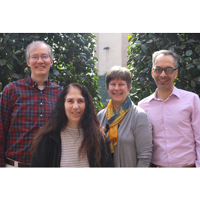
CRA members have elected three new members to its board of directors: Lorrie Cranor, Divesh Srivastava and Marvin Theimer. The CRA board of directors has elected new board officers to serve two-year terms beginning July 1, 2019. At the February board meeting, Ellen Zegura was elected chair; Nancy Amato was elected vice-chair; Ran Libeskind-Hadas was elected secretary; and James Allan was elected treasurer.
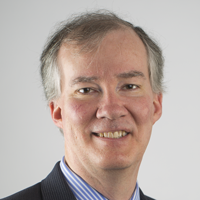
My current work focuses on support for critical literacy and efforts to foster new paths for equity in the sciences.

CRA is pleased to announce the 2019 Election Committee’s slate of nominees for the CRA Board. CRA also encourages nominations by petition.
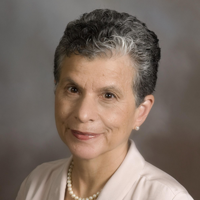
My computer science research career started during my college internship at Bell Laboratories in Murray Hill, New Jersey, during the early 1970s in the center that later produced UNIX and the portable C compiler. This experience taught me that computing was broader than the introduction to scientific programming in my undergraduate studies in applied math. (There was no computer science undergraduate major at the time.) For most of my career, I was interested in deriving descriptions of program execution behaviors from code in order, for example, to optimize program time and/or memory performance, to validate desirable properties such as correctness or data security, or to refactor code for ease of maintenance.
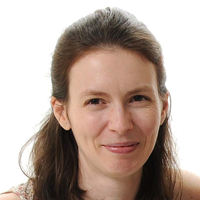
Increasingly, jobs rely on the ability to use computers to interpret, understand, and trust data. For example, my students and I have worked with ornithologists who cannot understand the representations of their bird sightings, civil engineers who cannot easily use their own building data, finance experts who cannot trace money between companies and their subsidiaries, and an XML document company whose clients cannot understand data that appears outside of their reports. In each case, the data users have been hampered because their data is exceedingly difficult to understand and trust, even though the users are experts in their fields. One reason for this difficulty is that the organization of the data is often designed for computers, not for people (i.e., for storage, not accessibility). Another reason is that data often come from different sources, leaving users with the challenge of integrating data that they neither understand nor trust.
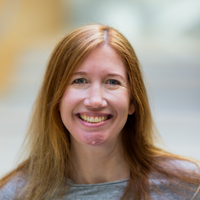
Research shows that it takes 25 minutes to reach full productivity after an interruption, yet we are interrupted every 3 minutes. And even without external interruptions, our focus is fragmented. We look at any given desktop window for an average of only 40 seconds, constantly self-interrupting to check email or Facebook. We also try to complete multiple tasks at once, even though we all know that multitasking typically fails. Our tendency to be easily distracted kept our hunter-and-gatherer ancestors alive when they needed to attend to potential predators, but now, in the safety of our offices, it is amazing we manage to get anything done. Chances are you won’t even read this entire article in one go.

The Computing Research Association seeks your help in recruiting candidates for its Board of Directors. We want individuals who have time, energy, initiative, and resources to work on CRA issues on behalf of the entire CRA community. We have a working Board, and all members are expected to work on community issues.
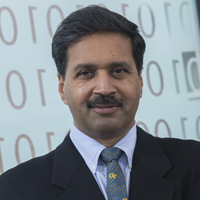
As a researcher, I am fascinated by the challenge of advancing the high-level foundations of computer software (programming models, compilers, and runtimes) to productively exploit the latest advances in computing systems. While there has been a long tradition of research in this area since the dawn of computing, the rapid evolution of hardware has continuously fueled a need for new software technologies as old approaches quickly become obsolete. Current explorations of new hardware directions that go beyond Moore’s law have further amplified the motivation for this research direction.
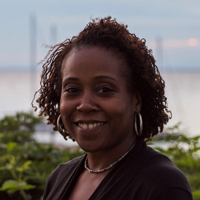
CRA and CRA-W Board Member Ayanna Howard was recently named the recipient of the 2018 Richard A. Tapia Achievement Award for Scientific Scholarship, Civic Science and Diversifying Computing from the Center for Minorities and People with Disabilities in Information Technology (CMD-IT). “The Richard A. Tapia Award is awarded annually to an individual who demonstrates significant research leadership and strong commitment and contributions to diversifying computing.
To achieve their educational mission, computing departments at research universities increasingly depend on full-time teaching faculty who choose teaching as a long-term career. This memo discusses the need for teaching faculty, explores the impact of teaching faculty, and recommends best practices.
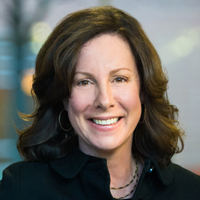
For the past 30 years I have had two passions – machine learning (ML) that makes a difference in the real world and increasing diversity in computer science (CS). For the first 26 years, I focused on my first passion and developed new approaches to ML though applications to remote sensing, neuroscience, digital libraries, astrophysics, content-based image retrieval of medical images, computational biology, chemistry, evidence-based medicine, detecting lesions in the MRIs of epilepsy patients, and predicting disease progression for MS patients. For the last four years, my focus has been on my second passion: increasing diversity in CS.
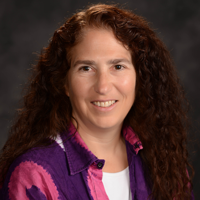
Recently, Nancy Amato, a robotics expert and CRA board member, was selected to lead the University of Illinois Department of Computer Science. She will be the first woman to hold this position at the University.

July 1 marked a new fiscal year for CRA. We welcome seven new members to our board of directors: James Allan, Mark Hill, Ayanna Howard, Ran Libeskind-Hadas, Margaret Martonosi, Rachel Pottinger, and Chris Ramming. Retiring from the board as of June 30 are Sarita Adve, Joel Emer, Greg Hager, Julia Hirschberg, H.V. Jagadish, Farnam Jahanian, and Elizabeth Mynatt. CRA would like to thank each of them for contributions during their service on the board.
